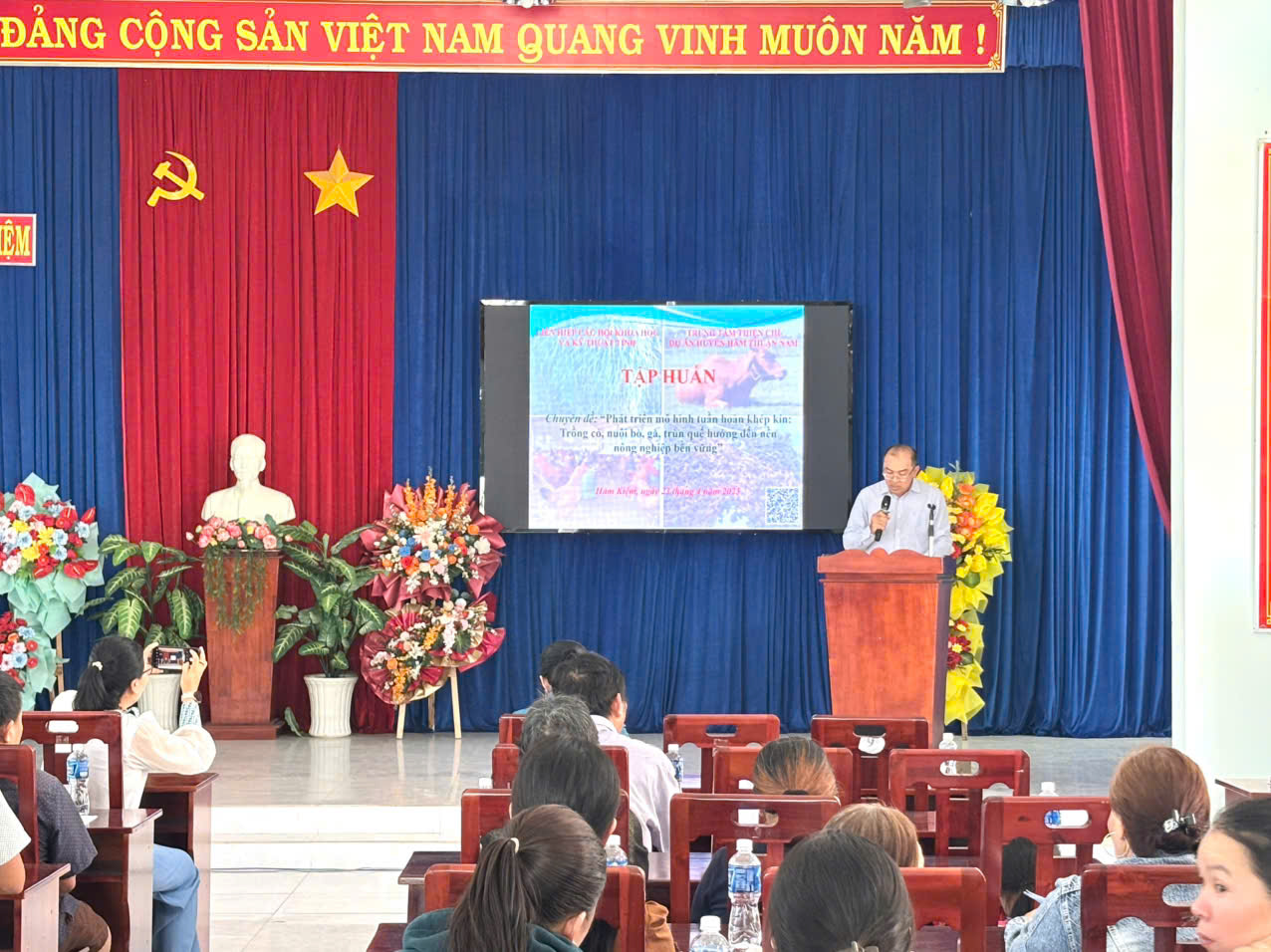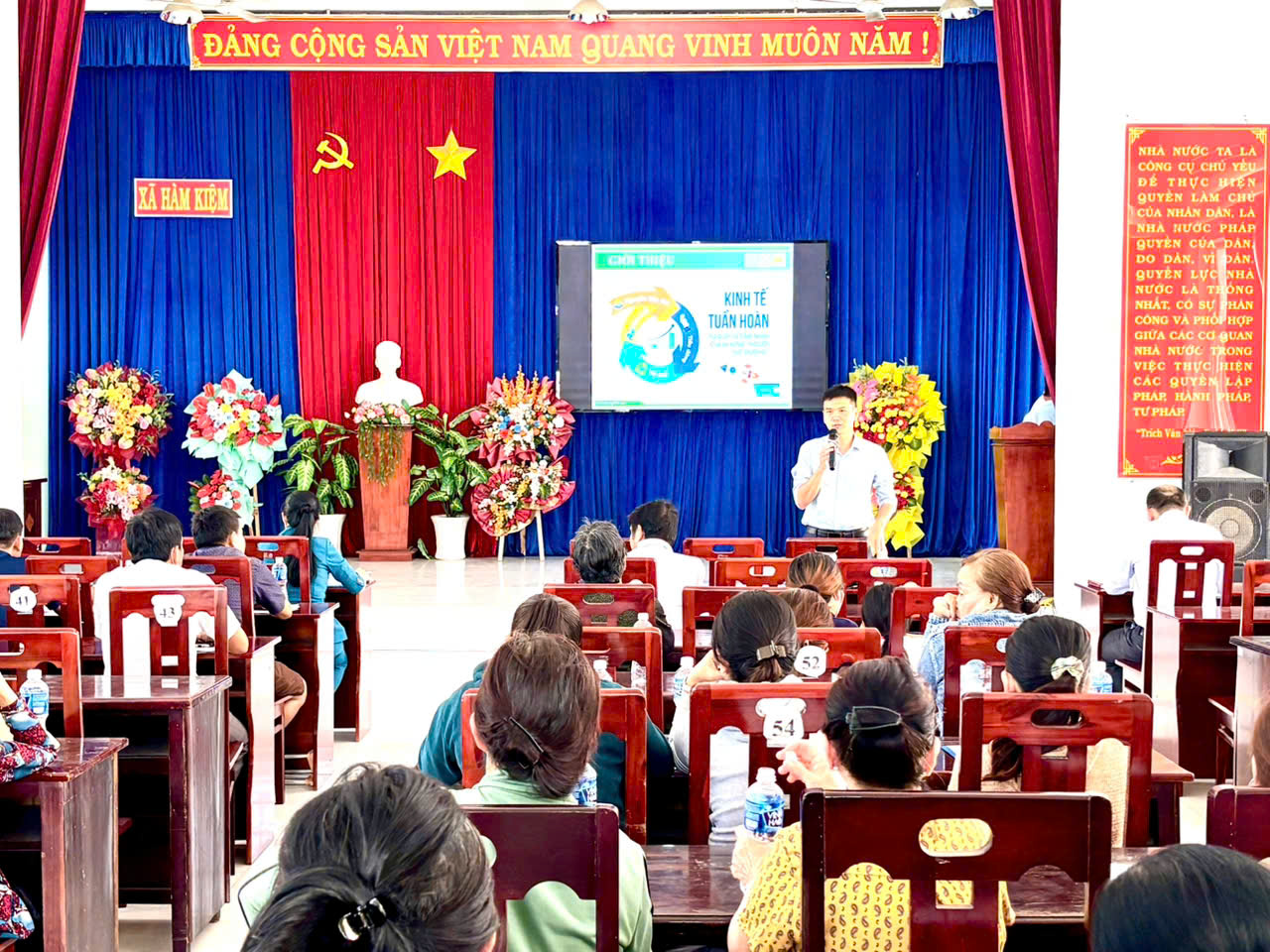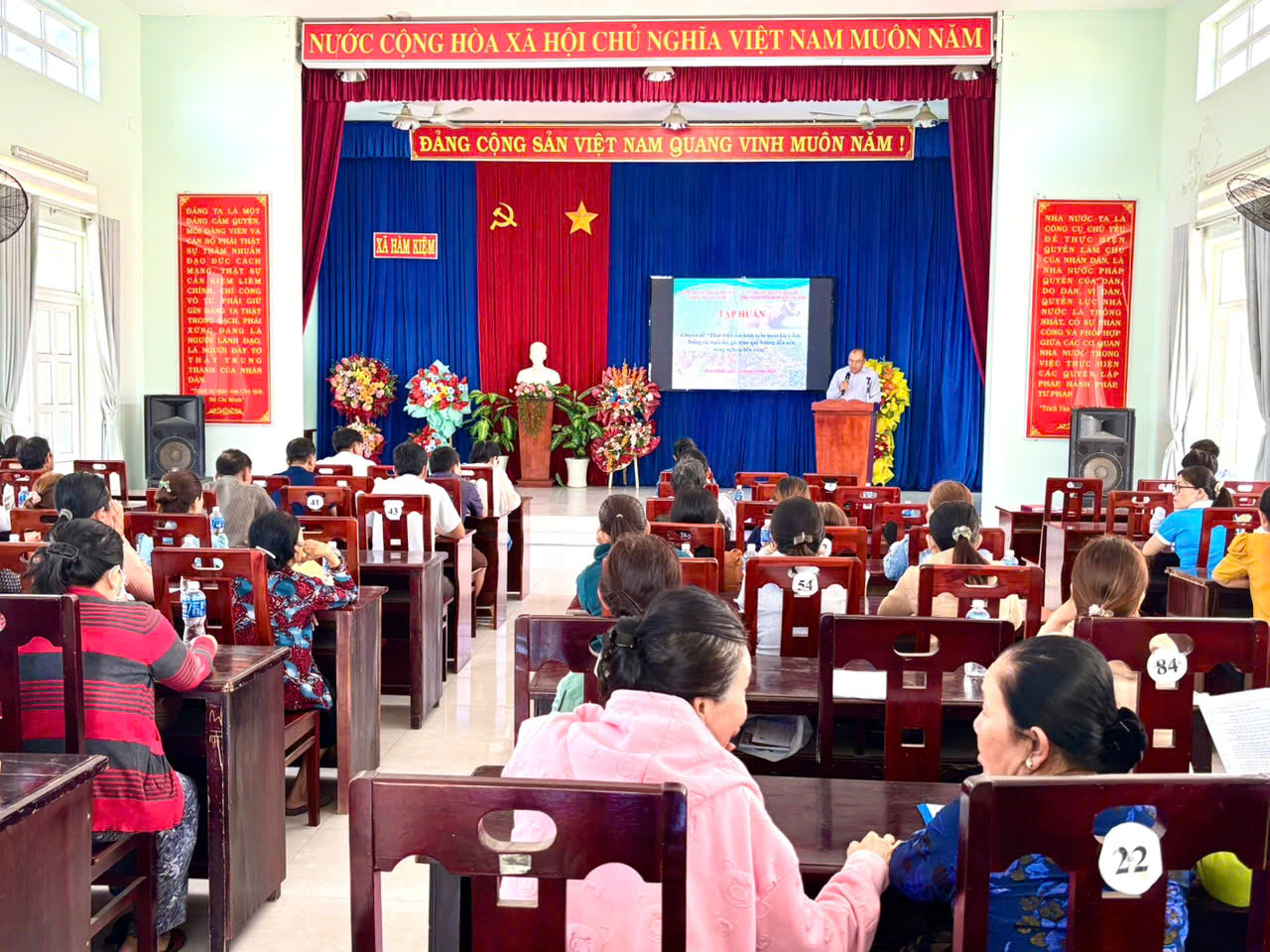On April 23, 2025, Thien Chi Center, in collaboration with the Union of Science and Technology Associations of Binh Thuan Province and the Women’s Union of Ham Kiem Commune, organized a specialized training session for 70 outstanding local farmers. The topic of the session was:
"Developing a Closed-Loop Circular Model: Growing Grass, Raising Cattle, Chickens, and Earthworms – Towards Sustainable Agriculture."

The training aimed to provide scientific knowledge, transfer modern farming techniques, and promote the development of circular, ecological agriculture, enabling farmers to both protect the environment and enhance productivity. The session focused on how to make the most of local resources by building an interconnected production model, where animal waste becomes input for crops, and vice versa, creating a closed-loop system that is both efficient and cost-saving.

Specifically, participants learned how to grow grass as feed for cows, use cow dung to raise earthworms, use earthworms as feed for chickens, and apply worm compost as organic fertilizer for crops.In addition to theoretical content, the training featured group discussions, instructional videos, and experience-sharing sessions with farmers who have successfully implemented the model. These activities inspired confidence and encouraged participants to adopt new, innovative farming practices.
